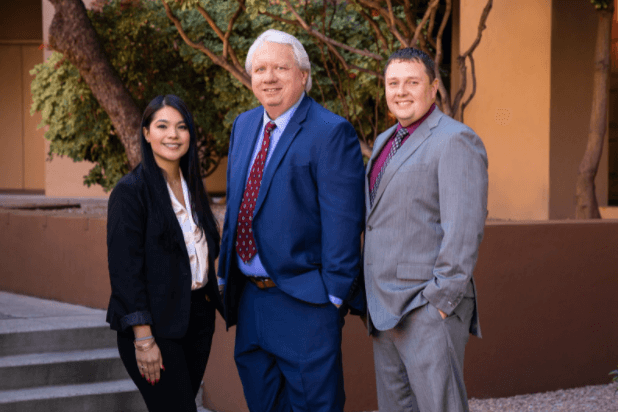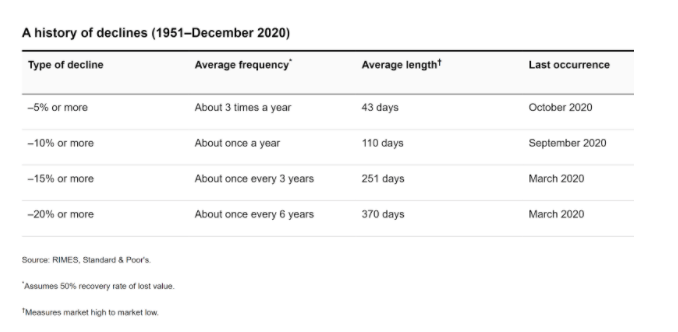By Jeff Gilbert
You’ve got big plans for your retirement. But nothing spoils a happy retirement more than the fear and anxiety of running out of money. Every retiree wants the comfort and confidence of knowing their retirement funds will allow them to check off every item on their bucket list. Nearly 56% of Americans worry they’ll outlive their retirement savings, so it’s more important than ever to make sure you’re prepared.
Of course there’s no quick-fix guarantee you will never run out of money, but there are certain steps you can take to maintain your wealth and improve your financial stability. Rather than worrying about running out of money in retirement, take these 3 steps to make your money last a lifetime.
Diversify Your Income
A great way to make your retirement funds last is to diversify your income. The truth is, no matter what your net worth, your income will always be your greatest wealth-building tool. That’s why a solid income stream is great, but multiple streams of income are even better.
Diversified income streams act in much the same way that diversified investments do. They allow for less demand and stress on any one income source, so that if an unforeseen event were to occur, the remaining income streams can pick up the slack. There are many ways to diversify your income, including:
- Invest in real estate. Owning rental properties is a great way to earn passive income without dipping into your retirement savings. Real Estate Investment Trusts (REITs) are another popular option.
- Continue to earn active income. You could also pursue a passion, become a freelancer, or work for a nonprofit. You will earn less than what you’re making now, but all these options will provide flexibility and a form of income diversification that will keep your retirement savings intact for longer.
- Use dividend-paying stocks. Often considered an annuity-like cash stream, dividend-paying stocks give company earnings to investors, typically once a quarter. The top dividend-paying stocks even raise their payouts over time. This not only gives you an income stream, but you can also reinvest the dividends to pursue more growth.
Avoid Overspending & Invest for Growth
Do you know what you will do with your newfound freedom in retirement? Many people start by pursuing all the things they didn’t get to do while working—traveling the world, picking up a new hobby, remodeling their home, and the list goes on.
But many people underestimate the amount of money they’ll spend in those first few years of retirement. With so much extra time on your hands, it’s easy to make a lot of little purchases that add up over time. Avoid overspending by creating a detailed (but realistic) budget for your retirement years. You can budget for extra expenses like vacation or pursuing a new hobby, but make sure you know how it will affect your nest egg before you follow through.
In addition to budgeting, another strategy for making your retirement income last is to invest excess cash for growth (stocks) instead of fixed income (bonds). This may sound counterintuitive since retirees tend to invest in more conservative investments to maintain steady income. But as bond yields remain historically low and inflation reaches new highs, many experts have expressed concerns over the sustainability of retirement investments that have a larger allocation toward bonds.
You certainly need the fixed-income component, but it’s important to consider including investments that have a greater growth potential in order to keep up with inflation and maintain your ability to withdraw funds every year.
Make sure you are investing with the proper perspective, and don’t cheat yourself out of years (or even decades) of potential growth.
Create a Withdrawal Strategy
When it comes to withdrawing from your retirement accounts, how you take your distributions can make all the difference. Your retirement income sources are likely produced from a variety of assets, including employer-sponsored retirement plans, Social Security, personal IRAs, or other income-generating investments. Each asset has different tax characteristics, and properly structured investments can help lower your tax burden if you plan how and when you’ll withdraw from each.
For example, most people will receive Social Security benefits during retirement, but 85% of your Social Security income can be taxed at your regular tax rate if your income exceeds a certain amount.
Regarding your personal savings, a $50,000 withdrawal from a Roth IRA will have a wildly different tax impact than that same distribution from a traditional IRA. If you blindly take your money and run, you could trigger an avalanche of higher Social Security taxes, investment surtax, capital gains taxes, and even higher Medicare premiums, which will eat away at the funds that were supposed to carry you through retirement. Creating a withdrawal strategy and a tax plan can help you maximize your retirement funds and improve your financial situation.
We Can Help Make Your Money Last
Your situation is unique to you, so there’s no cookie-cutter answer to when you can retire or how much money you need to live a comfortable life. But there are concrete ways to improve your financial stability. At Balboa Wealth Partners, we’re here to help you achieve your short-term and long-term goals, worry less about your finances, and focus more on your life’s passions.
If you would like to learn more about how to manage your money through retirement, we’d love to hear from you! Schedule an introductory appointment online, or call us at 949-445-1465. For any questions, feel free to reach out to me at jgilbert@balboawealth.com.
About Jeff
Jeff Gilbert is the founder and CEO of Balboa Wealth Partners, a holistic financial management firm dedicated to providing clients guidance today for tomorrow’s success. With over three decades of industry experience, he has worked as both an advisor and executive-level manager, partnering with and serving a diverse range of clients. Specializing in serving high- and ultra-high-net-worth families, Jeff aims to help clients achieve their short-term and long-term goals, worry less about their finances, and focus more on their life’s passions. Based in Orange County, Jeff works with clients throughout the entire country. To learn more, connect with Jeff on LinkedIn or email jgilbert@balboawealth.com.
Advisory services provided by Balboa Wealth Partners, Inc., an Investment Advisor registered with the SEC. Advisory services are only offered to clients or prospective clients where Balboa Wealth Partners and its Investment Advisor Representatives are properly licensed or exempt from registration.
Securities offered through Kingswood Capital Partners, LLC, member FINRA, SIPC.
Balboa offers advisory services independent of Kingswood. Neither firm is affiliated.




